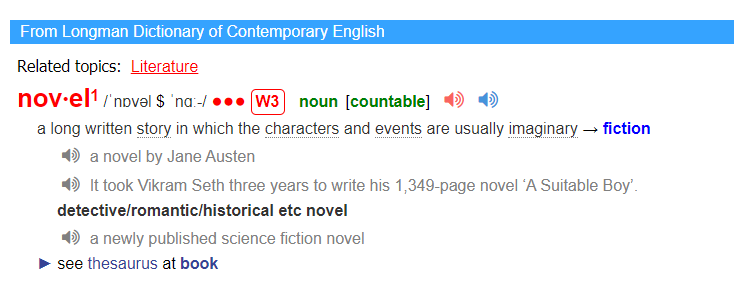How to learn new words
How to learn new words
How to Learn 30➕ New Words a Day
🤔 Learn all forms of the word
Many words in English can be used as a noun, an adjective and a verb. For example, take the word “milk”. “Milk” is a drink, but it is also an action, defined as “to draw milk from the breasts or udder” in the Merriam-Webster dictionary. The words “love”, “work”, “drive”, “hope” can also be used as verbs and nouns. And there are hundreds of similar cases. If you check it straightaway when learning new words, you widen your vocabulary easily.
Pay special attention to words with the same stem. If you’ve already learned the verb “to speak”, it will be easier for you to remember the noun “speech” and the adjective “speechless”. Suffixes and prefixes also may boost your vocabulary. Just look how easy it is to remember these pairs of antonyms when you’ve already learned one of them before: successful–unsuccessful, lucky–unlucky, relevant–irrelevant, hopeful–hopeless, etc. Knowing the rules of building new words, you actually learn more words at once.
For instance, the English word “ambition” is written exactly the same way in German, “ambición” in Spanish, and “ambitzione” in Italian. Other examples are “motivation”, “dissertation”, “profession”, “sanction”, “portion”, etc. These words are very easy to recognize and do not require any effort on your side to memorize them.
😮 Check other meanings of a new word
Often, words have more than one meaning. And learning them both will save you time. For instance, the word “to fire” may mean “to put on a flame” or “to let an employee go”. The same is true for the word “date”. The noun “date” means a day in the calendar, and the verb “to date” means to go out with someone you love. Two very different meanings can be covered in one go if you take the time to check each new word properly.
To check these meanings, you can go to an old-school dictionary. Or, you can try to use the Google search in images. If there is more than one commonly used meaning of the word, you will see pictures illustrating them both. And if you hit the rarer meaning of the word first, you will be surprised with image search results.
🙄 Use associations to remember words
Quite often, new words may remind you of some other terms, names, or words you’ve already learned. Use these associations to memorize new words quicker.
Google search can help you to find good associations. For instance, if you are trying to learn the word “spear” and google it, you will see also the results for a popular pop-singer Britney Spears. Now, you will easily remember the new word. Ryan Gosling’s surname is actually the word “gosling”. This is how you call a baby goose. Or let’s look at the word “beetle”. Its main meaning is a little bug. However, when you search for a beetle online, you will find also the car by Volkswagen. This small car looks a bit like a bug, so you can associate a new word with the popular car model.
🧐 Learn the expressions and idioms
Sometimes the words we already know and that sound pretty easy may get a completely different meaning when they become a part of an idiom or an expression. For instance, the word “nut” in the phrase “to be nuts” means that a person is acting crazy. Or the phrase “I feel blue”. It does not refer to the colour blue, as you may think, but rather, it describes a sad emotional state of the person. Always check the use of the new words in phrases and idioms to avoid stupid mistakes and use them like a native speaker.
To discover more idioms, phrases and expressions, check our YouTube channel English with LinguaTrip. There, we regularly post videos for English students.
🤫 Use new words straight away
The best way to remember new words is to put them into practice straightaway. Try to compose a sentence with the new word or phrase or use it in your next conversation later the same day. This way, it will move into your active vocabulary and you will feel more confident using it in your speaking or writing.
📝 Group Words By Topic
Learning a bunch of new words from completely different subject areas can be challenging. However, if you arrange them into groups, your life will be much easier. Try to arrange them by topic. Beginners can learn words related to food, transport, travel, entertainment, clothes, feelings, weather, etc. Students with advanced levels can focus on more specific topics, such as words from fantasy books, vocabulary of the future, political terms, teenagers’ slang, etc.
Another great idea is to group words by their grammatical function. For instance, you can pick a popular phrasal verb and learn all words and phrases that can be used with it. This way, you not only widen your vocabulary, but also start speaking more fluently and sound like a native speaker.
📱 Use mobile apps to help you memorize words
There are hundreds of apps that help you learn new foreign words, such as popular Memrise and Busuu. Try to install them all and test their free versions to see which one works best for you. Most of the apps have great sets of words arranged by topics and suitable for beginners. Advanced users will enjoy more of creating their own words of lists and using the app to memorize them. Let technology enhance your learning experience.
Summary
When you learn a new word, ensure that you check everything about it. Whether it has other forms and other meanings, whether it can be used in expressions and if you can build associations with it. It will help you to boost your vocabulary quickly and make learning the language easier.
How to memorize new vocabulary faster: 9 tips
No matter how good your grammar is, if you don’t know any words that you can use it with, you (literally) won’t get very far with your language skills: Vocabulary opens up doors to new worlds and makes learning fun and satisfying.
But expanding the range of word you know is like a diet: You have to put in some effort and there’s neither a magic trick nor a secret or one-approach-fits-all way to do it. Everyone has to find what works for them; but being patient, setting realistic goals, and rewarding yourself if you reach them are a good strategy that can be complemented with any of the following points.
1. Use Memory Techniques
A popular way to memorize vocabulary is the use of mnemonics, which are mental shortcuts that help you remember more complex concepts or words. For example, you can create associations between words: If you don’t know how to spell the words accommodation, just remember that it has two cots that need two mattresses. Or you come up with an acronym: Like, when you need to go to the STORE to buy Spaghetti, Tomatoes, Olives, Rice, Eggs. The problem is, of course, that you still have to memorize the acronym, song, or association, but with a little bit of practice, you’ll get good at coming up with creative and useful connections. And: The longer you think about acronyms or associations, the better will you remember the words that come with it.
2. Create a learning environment
When you’re studying abroad, you will hear and read the language everywhere and learn much faster through immersion. But you don’t have to go abroad to slowly increase the number of words you know – you can create an inspiring and study-friendly environment wherever you are: Buy magazines or books in the new language, watch movies, and cook (or just eat) the local food.
3. Put the words in context
A good idea to learn more words faster is to put them in context: Instead of writing lists of random words, try to put them in sentences. That way, you know how the word is used in real life. Plus, if you come up with funny sentences, it will be easier to memorize. Depending on how you learn, you can also make drawings or find images that will complement the sentences and put the words into their natural habitat.
4. Learn from real-life situations
Speaking of context: Movies, TV shows, books, podcasts or songs are not only a great source for the most common words, they can also help you memorize the vocabulary because they always come associated with a scene, a person, or a (real-life) event. So, try to read books or watch movies in the original language (with subtitles) and figure out what the words mean. If you see or hear a phrase or sentence that you don’t understand, write it down, look it up and start memorizing it.
5. Take it to the next level
If you want to take language learning to the next level, leave enough space for mind maps with associated words, synonyms or antonyms. If you want to get the most out of your learning process, try not to translate the word into your native language, but instead, explain and describe it in the language you’re trying to learn.
6. Find the tools that work for you
Everyone learns differently, so if you don’t already know what works for you, try as many different ways – or a combination thereof – as possible: Flashcards, apps, lists, games, or post-its, are great ways to memorize vocabulary. The same goes for finding the right time: Some people want to set apart a specific time, others learn more spontaneously. No matter which approach you choose, be sure to get into some kind of rhythm – practice makes perfect, after all.
7. Make it interactive
Just like you have to find the right tools that work for you, it’s also important to make the learning experience as encompassing as possible: Don’t just read the words from cards or lists – hear them pronounced, say them out loud yourself and write or type them. The more you make your encounter with the words an experience for all senses, the better. (Why not eat ice cream while learning what the different flavors are called?)
8. Focus on useful words
If you want to expand your vocabulary because you want to work at a marketing firm abroad, you probably don’t have to read Shakespeare’s novels or focus on words that pertain to the Middle Ages. The more practical and popular the words are for your career, hobbies and real-life conversations, the easier they are to learn – and you will be able to use them more often. (This can be like a game: You can reward yourself every time you used a certain word in a real-life conversation.)
9. Repeat and then repeat some more
Remember to not just repeat current words, but also the “old stuff” that you think you’ve memorized already. You don’t have to look at the stored words as often as the new vocabulary, but the more you use the words, the better you’ll remember and recall them.
Answer 13 Questions and We’ll Find the Best Way to Learn English Vocabulary for You
There are many effective ways to learn English vocabulary—and you can find the perfect one for you right here.
For some people, simply memorizing a word’s definition is enough. Others need entertaining or unique techniques to truly remember a word.
No matter what type of learner you are, we’ll show you how to learn English vocabulary successfully.
Contents
Download: This blog post is available as a convenient and portable PDF that you can take anywhere. Click here to get a copy. (Download)
Make Vocabulary Building Easier by Knowing Your Personal Learning Style
What kind of learner are you?
Some people learn best by listening, others learn best by writing. You can’t know which learning tips and methods will work best for you until you know which kind of learner you are.
For example, if you remember words better when you write them down, you should try something fun and productive that involves writing. Try writing a blog.
If you remember words better through repetition, use English vocabulary exercises to boost your knowledge.
It all depends on how you learn best.
If you are not sure which learning style works best for you, then you can try all of the suggested ways to learn English below. You will learn a lot about yourself and your brain by trying different methods.
These 13 Questions Will Reveal the Best Way to Learn English Vocabulary for You
Words are all around us. Sitting down and looking up words in a dictionary is not the only way to learn English words. You can improve English vocabulary by talking with English speakers, watching TV shows in English, writing in a journal… we’ll show you all of it and more below.
Remember, you may answer “yes” to more than one of our questions below. That’s okay! You can try multiple methods to learn English vocabulary, and mix and match the best ones for you.
1. Do Keep To-do Lists?
Your best way to learn English vocabulary: write down all the new words you hear.
If you’re the kind of person who loves keeping lists—like grocery lists, to-do lists for errands, project ideas, etc.—then use that to your advantage.
Keep a vocabulary list to remember new words that you encounter in English. Put this list somewhere portable (easy to carry around) like a little notebook or your phone, so you can access it from anywhere.
As you find words you don’t know, write them down. Make sure to keep plenty of space between words so that you can write more about the words later. When you get the chance (at the end of the day, or at the end of the week) find out what these words mean. You can write the definition however you want, translated to your native language, copied from the English dictionary or written in your own original words.
However you do it, we recommend also writing down the part of speech (e.g., verb, noun, adjective), different versions of the word (for example, if you write down the word “fish” you could also write down information for fishing, fishy, fisherman, etc.), and a full sentence using the word.
After you have been recording lists for a while, go back and read your old lists. How well do you remember those words from the older lists? Take any words you have forgotten from your old lists and add them to your new list. This is a good way to make sure you continue to improve English vocabulary as you advance.
2. Do You Love a Good Conversation?
Your best way to learn English vocabulary: use new words in conversation.
It can be easy to forget about words you’ve already learned as you move on to new ones. This is especially true for common words and words that you’re not sure how to use.
Try using your new words during the week as often as you can. The more you use the words in English conversations, the better you’ll remember them.
An English language exchange offers a great opportunity to use your new English words in real conversations. If you’re not able to have as many English conversations as you’d like, keep a diary and simply write about your day using the words, or just talk to yourself!
3. Do You Spend Your Weekends Playing Board Games?
Your best way to learn English vocabulary: play English-language board games.
Who said that studying can’t be all fun and games?
English board games like Scrabble or Vocabador offer great ways to learn new words.
There are lots of games you can play to strengthen your vocabulary. In fact, you can find a list of vocabulary board games right here!
Games are a good way to learn because they make learning fun, and they help give you context for your new words. That means you’re giving the word you learn an extra meaning.
For example, you might remember the way that the word was used during the game. You might remember your friend laughing about how the word was used. You might remember that it was very hard to think of that word the first time while playing! Having a real-life memory attached to that word makes it much more memorable.
4. Are You a Movie Buff?
One great way to learn English vocabulary: watch real English language movie clips online.
One of the best ways to learn new vocabulary words is to hear them being used. When you’re talking to an actual person, you might not have time to write down any new words or to look them up in the dictionary.
That’s why videos are a great option for vocabulary learning. Movie clips specifically can help you improve your English vocabulary without being overwhelming. Some virtual immersion platforms make use of movie clips and other videos to teach English.
FluentU, for example, has a dedicated section for excerpts from movies and TV shows. Each video has interactive subtitles that you can click for definitions and example sentences. And you can take a review quiz afterward to test your knowledge of the material.
5. Are You Good at Spotting Patterns?
Your best way to learn English vocabulary: group similar English words together.
As we already mentioned, it is better (and easier) to learn new vocabulary words by giving them some context. One way to do this is to remember words in a sentence. This is a great option because you will not only know the word, but you will also know exactly how to use it in conversation.
Another easy way to learn English vocabulary is to remember words by groups. If you just learned the word “humongous” (very large), you can memorize it by thinking of a group of words getting bigger and bigger—large, huge, humongous. This also gives the chance to learn even more words at the same time.
For example: large, humongous, gargantuan. What do you think “gargantuan” means?
6. Does Traditional Studying Work for You?
Your best way to learn English vocabulary: use English dictionary websites.
Sure, you can use an old-fashioned dictionary to look up a word. But many dictionary websites these days have so much more to offer!
Explore dictionary websites like Vocabulary.com and Dictionary.com and you’ll find lots of resources and things to do or read that can help you learn new words. Online dictionaries often have interesting word-related blogs, games you can play and “word of the day” newsletter subscriptions.
Merriam-Webster even has a learner’s dictionary (with a “word of the day” option that teaches you a new English word every day) with useful words for people learning English. Perfect!
7. Are You a Writer (or a Future Writer)?
Your best way to learn English vocabulary: keep an English writing blog.
Reading blogs is a nice way to learn new words, but writing a blog is even better!
You can start a free blog on many websites like WordPress and Tumblr. What you write in your blog and who sees it is all up to you. You can write about fashion or cats… or cat fashion—write about whatever interests you.
As you write, you will probably need to look up words in a dictionary. As you look up words, you will start to remember many of them! Using them in your blog gives them great context which will help your memory. You will learn exactly how to use them in writing.
Choose a list of words that you want to use before you write the blog. Writing with these words will help you practice and remember them.
Share your blog posts with friends and native speakers. Ask them for feedback. This will help make sure you used your words correctly.
8. Are You Detail-oriented?
Your best way to learn English vocabulary: break words into their parts.
Many words can be broken down into smaller parts. For example, the word “dictionary” comes from the Latin word dictio, which means “to speak.”
This is called the root of the word. A root word is a base used to create many words. Now that you know the root word dictio, you might notice it in other words too, like dictate, dictator and contradict. Even if you don’t know what the words mean, you now know that they have something to do with speaking.
Learning word parts is a great idea because you don’t just learn one word, you also learn other words that use these parts. You will also be better at guessing the meanings of new English words, because you will know what some parts of these words mean.
There are more parts to words than roots. Along with roots, words use prefixes (word parts that come in the beginning of the word) and suffixes (word parts that come at the end of a word).
Many dictionaries break down the word into these parts and tell you where these parts are from. You can find a list of word roots on LearnThatWord, and a more complete list that includes prefixes and suffixes on Macroevolution.
9. Are You a Bookworm?
Your best way to learn English vocabulary: read English books.
Reading is a good way to learn new words, but what you read can also make a huge difference in how much you learn.
Choose books that are a little bit challenging for you, and you will learn a lot more than if you read at your level. If you read a book at your level, you may already know all the words. If you read a challenging book, you will need to learn many new words.
You can also try reading special vocabulary books. These are fiction books that include over 1,000 vocabulary words and their definitions! These books are available to buy online, and can be found at ThriftBooks or by searching Amazon.
10. Do You Learn by Doing?
Your best way to learn English vocabulary: take English vocabulary quizzes.
For many people, memorization is simply not enough. You have to practice and apply what you’ve learned—in other words, “learn by doing”—to truly remember the information.

Try using quizzes to make sure you still remember each word you learned, and to remind yourself of the words you learned a while ago. There are many vocabulary quizzes you can use to test yourself. You can find some at Vocabtest, Merriam-Webster and Vocabulary.com, among many others. Don’t forget that FluentU will always keep you practicing the vocabulary words you learned while watching videos!
11. Do You Love to Travel?
Your best way to learn English vocabulary: link new words to English-speaking cultures.
There are a number of different kinds of English around the world. British and American English might seem the same, but there are many little differences.
If you love to travel and discover new cultures, consider how English words are used, pronounced or spelled in different cultures. This will make them seem more interesting and memorable to you—plus, it will be helpful if you visit different English-speaking countries!
The word color, for example, is spelled as “colour” in British English. British people used the words “brilliant” and “cheers” often, but Americans prefer to say “cool” instead of “brilliant” and “see you” instead of “cheers.”
This is also a helpful idea if you’re already focused on one specific type of English. When you are learning new words, keep in mind which country you plan to visit, live in or work in. You should learn British English if you plan to go to England, American English if you plan to go to the U.S., and so on.
12. Are You a Social Butterfly?
Your best way to learn English vocabulary: study new words with English learning friends.
Learning is easier and more fun when you do it with others!
Find a group of friends who want to learn English with you, get an online native speaking buddy or join a website with other learners. Whatever you choose to do, you will benefit greatly from working with others.
One excellent group learning program you can join is called Toastmasters. This group has meeting spots all over the world, and it helps people learn to speak in public. This can be a huge help to you if you have trouble speaking English with others!
Another great idea is to talk to other English learners on Facebook. There are many Facebook pages for English learners. Some are pages where English learners have created an online community for support and friendship. Other pages have actual native speakers helping the group learn. Find one, and your studying will suddenly get much easier.
13. Are You Curious and Always Asking Questions?
Your best way to learn English vocabulary: ask “what does that mean?” as often as you can!
Finally, never be afraid to ask questions!
If someone uses words you don’t understand, ask them “what does that mean?” Many people are very patient and understanding if you tell them that you’re learning English. In fact, many will actually enjoy helping you!
So, have you found your personal best way to learn English vocabulary? Don’t be afraid to try everything and discover how to learn English vocabulary in a way that works for you. Study hard but have fun, and before you know if you’ll have a gargantuan vocabulary!
Download: This blog post is available as a convenient and portable PDF that you can take anywhere. Click here to get a copy. (Download)
1. Group the words
It is easier to learn words when they have something in common. It can be the same topic, word and its opposites, word and its synonyms, or some other logic. Grouping the words helps to memorize them, as you link the words not only to its meaning but to some general category too. So, if you accidentally forget, let’s say, what ‘машина’ is, you still may recall that it relates to transport, and then to guess its meaning. Learning synonyms together helps to get the nuances of meanings.
Moreover, it will be easier to organize the following regular practice for these words. It is difficult to find a context to practice the words, that have nothing in common.
2. Find associations
Probably, it is the most popular approach to learn new words. You need to find a word or phrase in your mother tongue (or another language you speak), that will sound similar to the word you learn. It is better if you can logically explain or make this association visual to better link it to the word.
Here are some examples of English associations to Russian character adjectives:
3. Design collocations and sentences
This technique will help you to figure out, how a new word works in the context, and to repeat it several times as well (which also helps to memorize).
Think of as many collocations and sentences with a new word, as you can (or until you get bored). If you have any doubts in your examples, find examples in a textbook, in a dictionary, or in Corpus.
For instance, if you learn the word ‘брать’ (to take), what patterns can be here?
9 Ways To Learn New English Vocabulary
“What’s the best way to learn new English vocabulary?”
My students ask me this question so often! The answer is practice. But what type of practice is best? Wouldn’t it be great to learn and practice new vocabulary in the most effective way, so you can feel confident that you’re learning as quickly as possible? Right now, I’m learning Spanish so I’m just as interested as you are to find the right answer to this question! To successfully learn new vocabulary, you need to create good study habits, keep it interesting and make it fun! The truth is, we all learn differently. So I’ve made a list of different tools and techniques that you can use to improve your vocabulary (in the way that works best for you)!
1. Don’t learn individual words on their own! Learn words in groups that they are commonly used in.
Have you heard of collocations? A collocation is two or more words that are often said together. They just ‘sound right’ together because native English speakers use them together often. Have you ever heard a native speaker tell you “well… you could say that, I guess… But it doesn’t sound right (it doesn’t sound natural).” By learning words together, you’ll quickly start to understand which words ‘sound right’ together. You’ll learn how words correctly join together in a sentence, then later, you can start adding or replacing new words, as you learn new ones.
For example, instead of memorising the noun ‘bunch‘, learn ‘bunch of grapes’ or ‘I bought a bunch of bananas’. Instead of learning the word ‘apply‘, learn the phrase ‘apply for a job’. You can learn hundreds of new individual words in English but you will be frustrated if you can’t correctly put them into your sentence together, in a way that makes sense and sounds natural. When you learn words in groups, you’re learning new words WITH the verbs, nouns and prepositions they are used with so you sound more natural when you speak!
2. Learn new vocabulary through stories.
Stories are FULL of new words, phrases and interesting expressions that show you how words come together in an interesting, fun and engaging way! Just like the collocation method, you are learning new vocabulary in context. You’re not only learning what words to use but how to use them! An important note to remember: It’s great to challenge yourself, but it’s important not to feel completely confused! Read stories that are fun and enjoyable! If you are not very confident with English, start with children’s books. “Emma, are you serious? Children’s books?” Yes! I’m serious! There are lots of great children’s books that are interesting, funny and full of adventure! Start with children’s books, and when reading them becomes too easy, try something a little more challenging! Some great books to start with are:
3. Listen while you read.
Take English storytime to a whole new level using audiobooks! Some of you will prefer to listen and read in English, see you can see new words as they’re read. Another technique is to listen to the same story in your native language while you read in English! This technique will help you understand to understand so many new, interesting words and phrases. You will need to select a popular book that has been translated from English into your native language, such as Harry Potter.
4. Learn new vocabulary through songs
If you love listening to music, there is no doubt that learning new vocabulary through songs will help you remember them. You’ll need to find songs where the words are not sung very fast so that you can hear each word and how it’s pronounced. It’s more effective if you can download the lyrics and read as you listen to learn the words and rhythm correctly. There are lots of extra benefits when you learn new vocabulary through songs, such as:
Here are a few of my suggestions:
You can easily find the lyrics to heaps of other English songs at metrolyrics. (If you know some good songs to practice with, post your suggestions in the comments box and share your love of English music!)
5. Use Online dictionaries!
Online dictionaries offer so many ways to practice and learn new vocabulary! Let’s look at the verb ‘produce’ as an example. When I look up this word in an online dictionary I can:
I recommend the Oxford Learner’s Dictionary. They also have great apps for iPhone and Android. Go and explore all their amazing vocabulary building tools! Plus if you sign up to their email list, you’ll get sent a new English word every day! That’s another great way to learn new vocabulary!
6. Labels & Flashcards
Flashcards have been a favourite way of learning new vocabulary for years and years. But there are different options available for us today. You might prefer to hand-write flashcards with an English phrase on one side and the translation to your native language on the other side. You can also use an SRS programme, such as Anki. I downloaded Anki a couple of weeks ago and I think it’s fabulous! An SRS allows you to remember a large number of words in a short amount of time and it lets you work at your own pace. As you practice with the flashcards, the programme remembers what words you know and what words you don’t know. It will keep showing you the flashcards you get wrong so that you practice them more! It is a really efficient way of studying.
7. Describe the world around you
If you like using a dictionary to learn new English vocabulary, getting into the habit of describing things that are happening around you in English is a great way to study. When you are unsure of words, look it up! It will help you fill in the gaps in your vocabulary. For example, when you are at your local supermarket, ask yourself:
When you can’t think of a word, stop and look it up. Understand how to use it and practice it again the next time you visit the supermarket!
8. Imitation and Shadowing
Imitation and shadowing are great techniques to improve pronunciation and spoken English, but they’re also awesome for learning new vocabulary! Sign up for my free email lessons here to practice imitation and shadowing! Try it for yourself!
9. Language Immersion for Google Chrome
This is a really neat extra trick you can use to keep you learning new words as often as possible, so you improve quickly! Language Immersion for Chrome works when you are browsing websites. It randomly chooses words on websites you are viewing and shows them in English. It works for any of the 64 languages supported by Google Translate. The great part is that you can change the settings from beginner through intermediate to advanced! For example, individual words and short phrases are translated for beginners, while whole sentences are translated for advanced level students. If you hover your mouse over the word, you can hear it pronounced and translate it back to your native language
Most importantly, you need to find ways to learn vocabulary that work best for YOU. Because hey, we all learn differently, we have different priorities and different amounts of time to spend learning new languages. You need to create your own good study habits and find ways to enjoy English!
Do you have any other great ideas for learning English vocabulary? Suggest them in the comments box below, I’d love to hear from you!










